This Image Was Taken By The NASA/ESA Hubble Space Telescope’s Advanced Camera For Surveys (ACS) And

This image was taken by the NASA/ESA Hubble Space Telescope’s Advanced Camera for Surveys (ACS) and shows a starburst galaxy named MCG+07-33-027. This galaxy lies some 300 million light-years away from us, and is currently experiencing an extraordinarily high rate of star formation — a starburst.
Normal galaxies produce only a couple of new stars per year, but starburst galaxies can produce a hundred times more than that. As MCG+07-33-027 is seen face-on, the galaxy’s spiral arms and the bright star-forming regions within them are clearly visible and easy for astronomers to study.
In order to form newborn stars, the parent galaxy has to hold a large reservoir of gas, which is slowly depleted to spawn stars over time. For galaxies in a state of starburst, this intense period of star formation has to be triggered somehow — often this happens due to a collision with another galaxy. MCG+07-33-027, however, is special; while many galaxies are located within a large cluster of galaxies, MCG+07-33-027 is a field galaxy, which means it is rather isolated. Thus, the triggering of the starburst was most likely not due to a collision with a neighboring or passing galaxy and astronomers are still speculating about the cause. The bright object to the right of the galaxy is a foreground star in our own galaxy.
Object Names: MCG+07-33-027
Image credit: ESA/Hubble & NASA and N. Grogin (STScI)
Text credit: European Space Agency
Time And Space
More Posts from Ritasakano and Others
👏
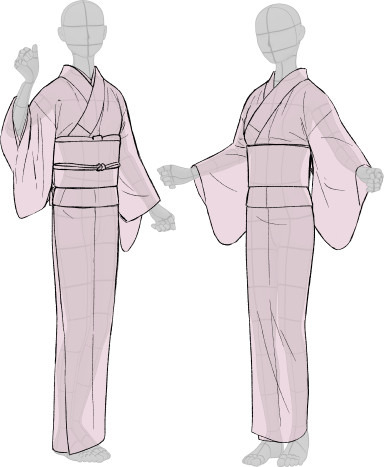
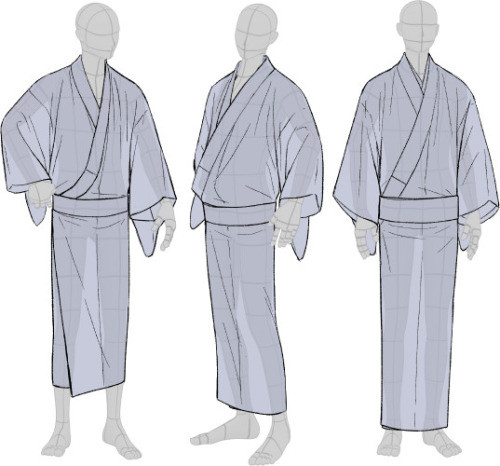
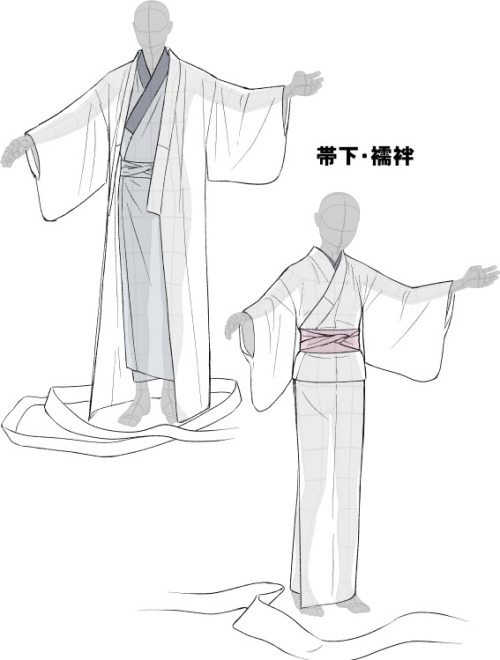
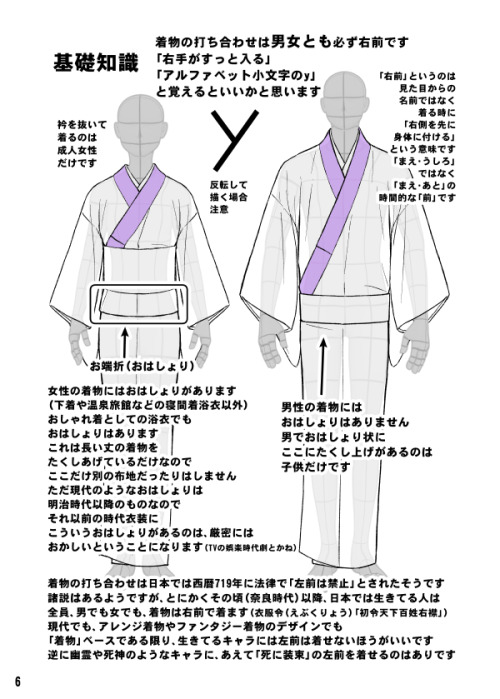
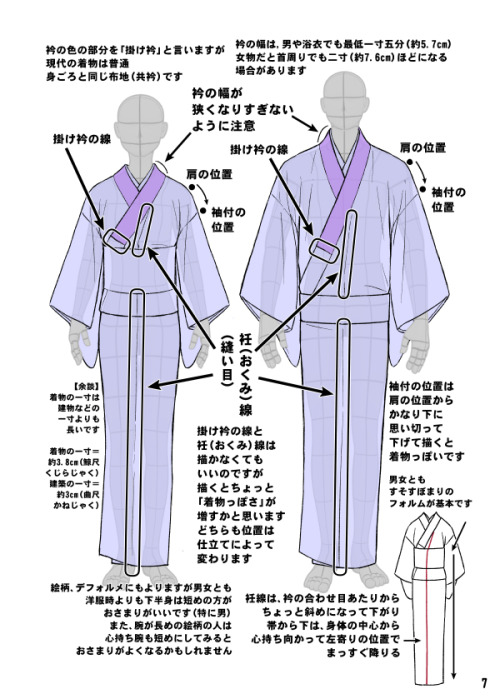
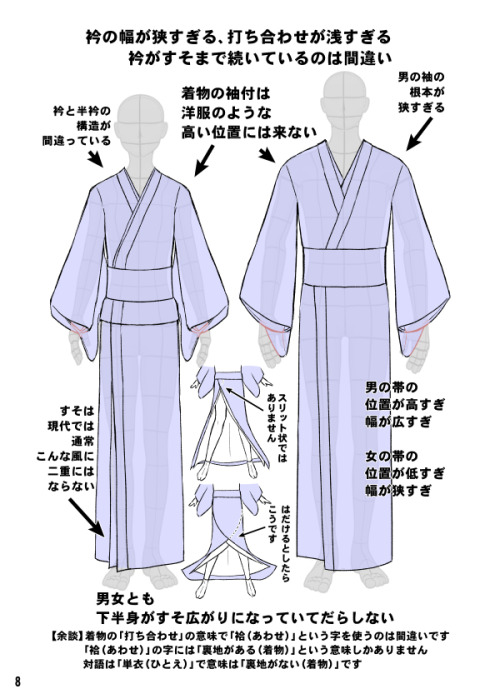
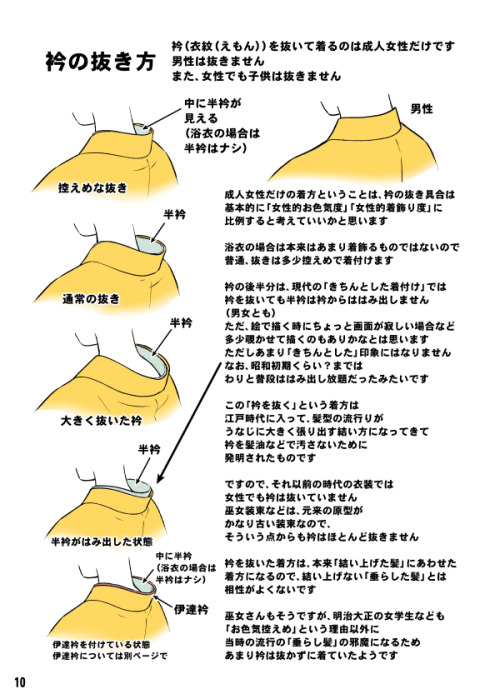

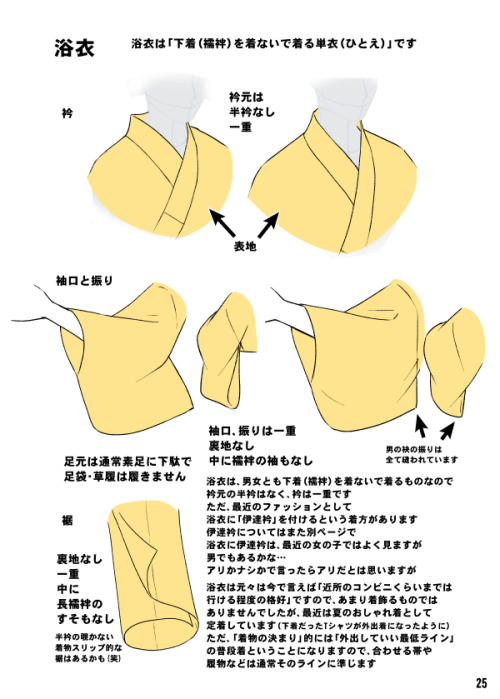
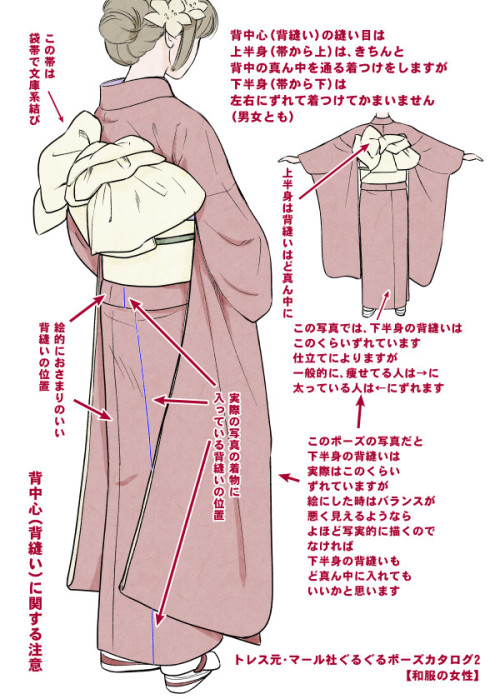
Kimono drawing guide ½, by Kaoruko Maya (tumblr, pixiv, site). Booklet is available in pdf for ¥ 900 here.
Here you can see:
female kimono and yukata (note how the juban underwear peeks when in kimono + how belts differ)
male yukata and kimono (note how the juban underwear peeks when in kimono)
dressing up: male (kimono is not closed yet) and female (kimono closed with datejime belt and ready to put on obi)
differences between female and male kimono once dressed (note how the collars and belts set)
common drawing mistakes (compare with previous picture: shoulders lines are too defined, there is a double hem, collars are narrow, belt is not at the right place etc)
women back collar (the lower the sexier) and men back collar (close to the nape)
back and sleeves differences between men and women
collars and sleeves and view of how kimono drapes around body
Furisode back (long sleeves kimono) and formal furisode obi knot example

Futon de algodão e um mimo para o neto!!

yuri mizutani Original_2015
Mohommah G. Baquaqua

“’Que aqueles ‘indivíduos humanitários’ que são a favor da escravidão se coloquem no lugar do escravo no porão barulhento de um navio negreiro, apenas por uma viagem da África à América, sem sequer experimentar mais que isso dos horrores da escravidão: se não saírem abolicionistas convictos, então não tenho mais nada a dizer a favor da abolição.’ As palavras são de Mahommah Gardo Baquaqua, ex-escravo nascido no Norte da África no início do século XIX e que trabalhou no Brasil antes de fugir das amarras da servidão em Nova York, em 1847. O trecho consta do livro “An interesting narrative. Biography of Mahommah G. Baquaqua” (“Uma interessante narrativa: biografia de Mahommah G. Baquaqua”, em tradução livre), lançado assim mesmo, em inglês, pelo próprio ex-escravo, em Detroit, no ano de 1854, em plena campanha abolicionista nos EUA. A obra jamais foi traduzida para o português, permanecendo desconhecida do público brasileiro.

Fonte: http://www.bocadaforte.com.br/reportagens/baquaqua-a-auto-biografia-de-um-escravo.html

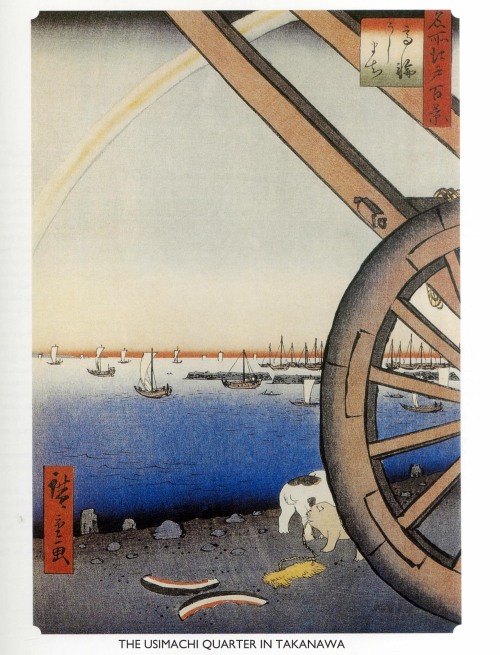
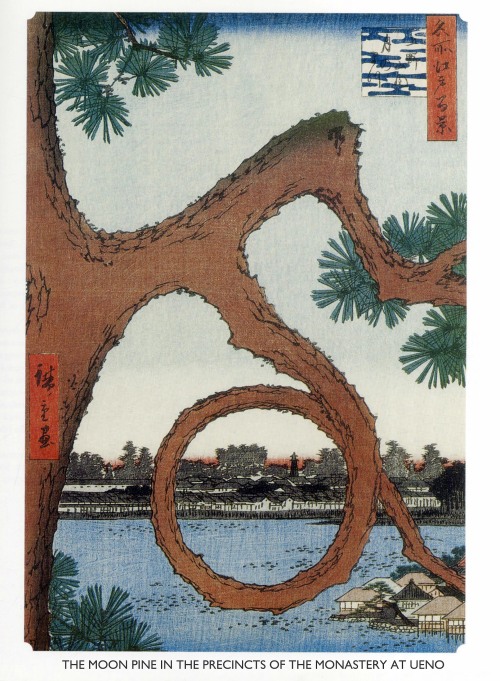
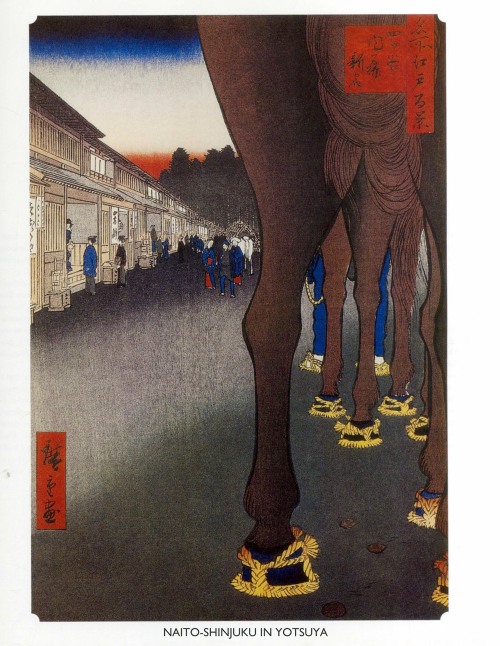
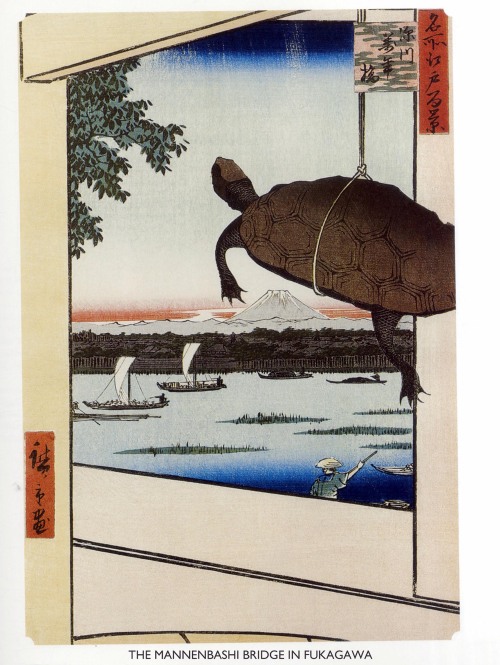
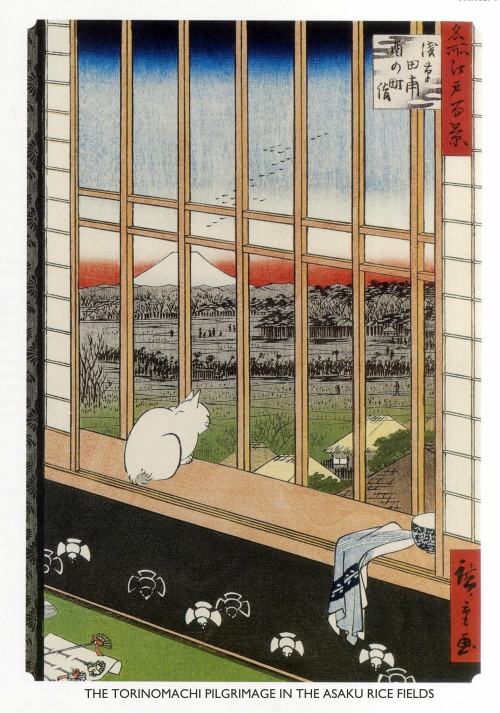
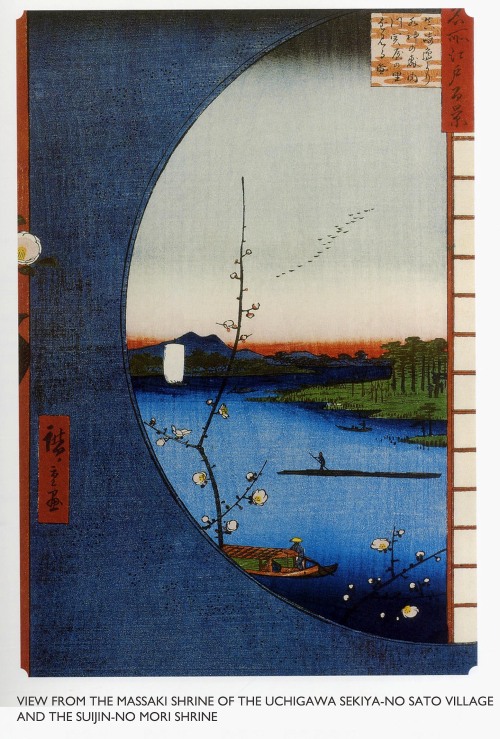
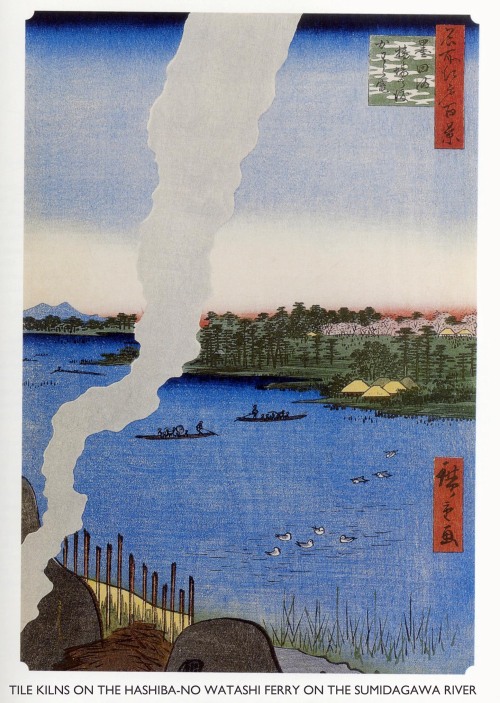
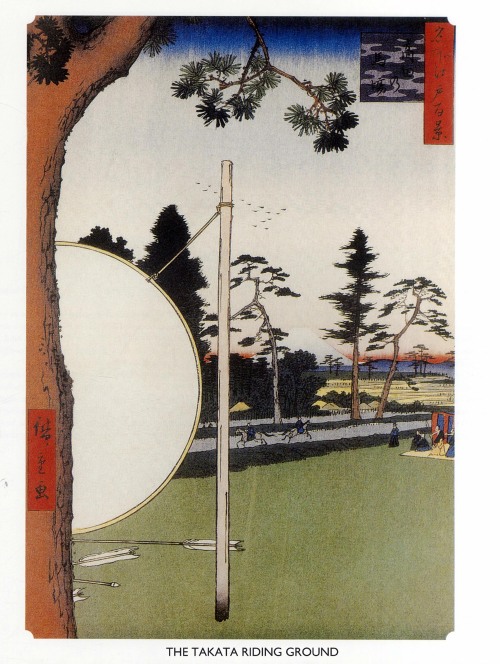
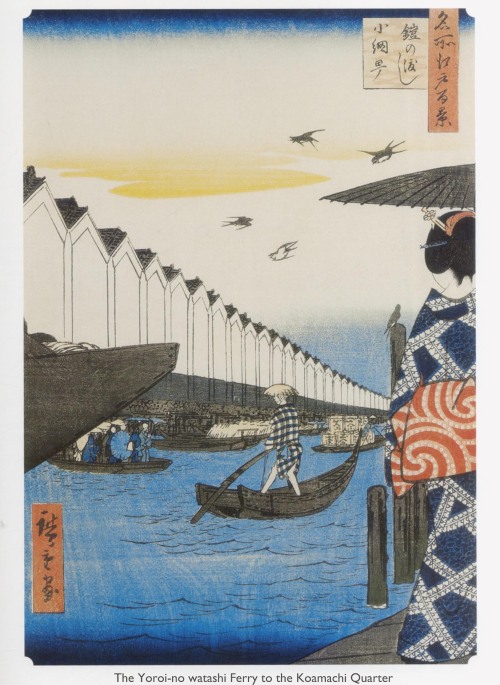
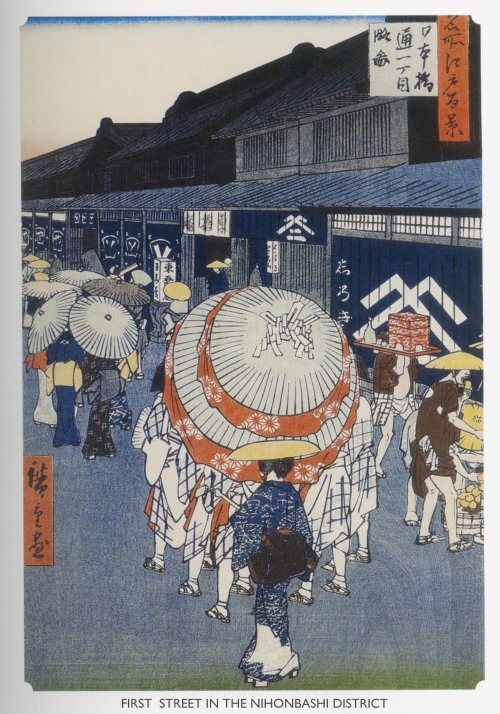
Hiroshige: from One Hundred Famous Views of Edo 1858-59 woodblock print
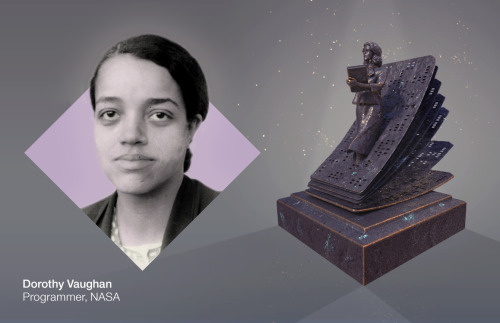
Meet the real women behind Hidden Figures.
In the early days of the Space Race, Dorothy Vaughan headed the National Advisory Committee for Aeronautics’ (NACA) West Area Computing unit. It was an important but segregated unit of mostly female mathematicians doing aerospace calculations by hand. When NACA became NASA in 1958, the Analysis and Computation Division desegregated and Vaughan became a sought-after expert on FORTRAN – a programming language used on IBM mainframes.
Vaughan is one of the women whose work inspired the film Hidden Figures — a true story of three African American mathematicians who helped NASA launch the first Americans into space.
Feeling inspired? See how coding might figure into your life. Uncover more about Dorothy Vaughan →
-
 shadowdancers reblogged this · 7 years ago
shadowdancers reblogged this · 7 years ago -
 vliigeh-blog liked this · 8 years ago
vliigeh-blog liked this · 8 years ago -
 hdharper87 liked this · 8 years ago
hdharper87 liked this · 8 years ago -
 sansainthen0rth reblogged this · 8 years ago
sansainthen0rth reblogged this · 8 years ago -
 justenoughisplenty liked this · 8 years ago
justenoughisplenty liked this · 8 years ago -
 wonder-and-fear liked this · 8 years ago
wonder-and-fear liked this · 8 years ago -
 courtabort-blog reblogged this · 8 years ago
courtabort-blog reblogged this · 8 years ago -
 feelsmobile liked this · 8 years ago
feelsmobile liked this · 8 years ago -
 voicesinlife-blog liked this · 8 years ago
voicesinlife-blog liked this · 8 years ago -
 plan-study-sleep-repeat liked this · 8 years ago
plan-study-sleep-repeat liked this · 8 years ago -
 samhain-child liked this · 8 years ago
samhain-child liked this · 8 years ago -
 swiftsnowmane liked this · 8 years ago
swiftsnowmane liked this · 8 years ago -
 dairy-boy reblogged this · 8 years ago
dairy-boy reblogged this · 8 years ago -
 harmonicshadow reblogged this · 8 years ago
harmonicshadow reblogged this · 8 years ago -
 harmonicshadow liked this · 8 years ago
harmonicshadow liked this · 8 years ago -
 after-moonrise liked this · 8 years ago
after-moonrise liked this · 8 years ago -
 living-in-midnight-blog reblogged this · 8 years ago
living-in-midnight-blog reblogged this · 8 years ago -
 bluelectricblu liked this · 8 years ago
bluelectricblu liked this · 8 years ago -
 shitsarahsaid reblogged this · 8 years ago
shitsarahsaid reblogged this · 8 years ago -
 coffee-and-vroomvroom reblogged this · 8 years ago
coffee-and-vroomvroom reblogged this · 8 years ago -
 nous-alchemy liked this · 8 years ago
nous-alchemy liked this · 8 years ago -
 maguffin reblogged this · 8 years ago
maguffin reblogged this · 8 years ago -
 maguffin liked this · 8 years ago
maguffin liked this · 8 years ago -
 onepartyending reblogged this · 8 years ago
onepartyending reblogged this · 8 years ago -
 kittymeowme reblogged this · 8 years ago
kittymeowme reblogged this · 8 years ago -
 420powell liked this · 8 years ago
420powell liked this · 8 years ago -
 starsaremymuse reblogged this · 8 years ago
starsaremymuse reblogged this · 8 years ago -
 tinylou96 liked this · 8 years ago
tinylou96 liked this · 8 years ago -
 starsaremymuse reblogged this · 8 years ago
starsaremymuse reblogged this · 8 years ago -
 lumosnite liked this · 8 years ago
lumosnite liked this · 8 years ago
